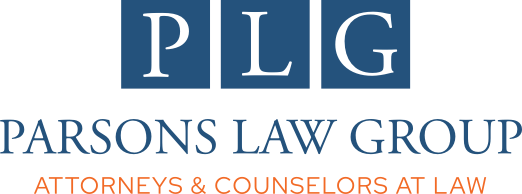People who suffer work injuries are protected by Georgia workers’ compensation laws. However, many people don’t fully understand how workers’ compensation can provide them with benefits when they get hurt on the job.
As an employee in Georgia, it is important that you know your rights.
Here are some answers to frequently asked questions for those who want some basic information about their rights after an on-the-job accident.
1. What is Workers’ Compensation?
Workers’ compensation laws in Georgia provide protection to injured workers. Employers are required to buy a workers’ compensation insurance policy as long as they have more than three full-time employees.
This insurance policy covers you if you are hurt at work. The workers’ compensation policy guarantees that your bills and costs will be covered so you can get the medical help you need after a workplace accident and so you can support yourself and your family if your injury makes it impossible for you to work or to return to the job you had before you were injured.
Workers’ compensation provides you with broad but not total protection, covering virtually all work injuries, regardless of whether you or the employer was at fault. However, it is also an exclusive remedy system. This means you generally cannot sue your employer if you get hurt on the job except in very rare cases. You must file a workers’ compensation claim in order to get benefits from your employer.
There are some situations in which a third party – someone other than your employer or co-workers – contributes to an accident, and it may be possible to recover additional compensation in a third-party lawsuit. However, it is still important to file for workers’ compensation benefits after any on-the-job accident.
2. What Types of Injuries are Covered by Georgia Workers’ Compensation?
Any type of injury that you sustain in the workplace or as a direct result of doing your job is covered by workers’ compensation in most situations. This includes injuries that occur away from the place where you normally do your job. For example, if you are required by your boss to attend a retreat for the company and get hurt during the retreat, then your injury may be covered by workers’ comp. If you are sent on a company errand and get hurt in a car accident, then this would also be a work injury covered by workers’ compensation.
A key factor is whether you were required to do what you were doing as a part of your job. An injury at a company party, for example, might not be covered. Injuries sustained while commuting to and from work are also generally not covered by workers’ compensation. However, if you are injured while going to or from an employee parking lot, your injury may be covered.
3. Are Workers’ Comp Benefits Available for Repetitive Stress Injuries?
Repetitive stress injuries resulting from your job could be considered covered workplace injuries. This can include injuries such as carpal tunnel syndrome or damage done to your back or knees as a result of repetitive lifting at work.
You will need to show that the injury was caused by your job duties. For example, if you developed carpal tunnel syndrome, but you frequently knit at home, then your employer might try to argue that the injury was caused by the knitting rather than by your job. This would be a totally bogus denial but trust me, they will use anything to deny your claim. Medical testing will usually be needed to confirm a repetitive motion injury.
4. I Got Sick From Chemicals at Work. Can I Get Workers’ Comp Benefits?
Many people suffer workplace injuries as a result of exposure to toxins or dangerous fumes at work. These toxins may include lead, asbestos, mold, or chemicals. If you become ill as a result of being exposed to a dangerous substance at work, then this could be a covered workplace injury. This is true even if the illness developed many years after you were first exposed to the toxin, as long as you can prove it was connected to your job. You will need expert medical evidence to link your job to the injury. We know the right doctors to properly diagnose and establish a causal link to your dangerous job environment.
5. When Should I Report a Work Injury to My Employer?
You should report your work injury to your employer as soon as you can after the accident. Georgia law requires a 30-day notice to your employer. In order for your medical treatment costs to be covered, you will need to see a doctor authorized by your employer. Furthermore, a delay in reporting your injury could make it more difficult to prove that your injury was related to your job and could result in a denial of your workers’ compensation claim.
If your employer denied your claim because there was no proper notice, please contact us immediately. The “Notice Defense” is generally ignored by the Courts and any amount of notice, including telling your boss that you are “hurting” or bringing in a medical excuse from work, is sufficient notice under Georgia law. Do not let an insurance company deny your cs
You should report every on-the-job injury, even if it seems at first to be relatively minor. This is because an injury that initially seems to be minor could become worse over time. You do not want to do anything to jeopardize your right to make a workers’ compensation claim and get the benefits you deserve.
6. I Think the Accident Was Partially My Fault. Does That Mean I Can’t Get Workers’ Comp?
Workmans’ comp is a no-fault system. Workers’ compensation claims are not based on negligence or fault. You can make a claim and get benefits even if you were at fault or caused your accident. In other words, you can get benefits even if you did something wrong or made a mistake. As long as you did not do something on purpose to hurt yourself and were not intoxicated or impaired by drugs, you will be able to recover benefits through the Georgia workers’ compensation system.
7. How do I Make a Claim for Workers’ Compensation Benefits?
If you get hurt at work, you should report your injury to your employer as soon as you can. Your employer will fill out a report of the injury and provide notification to the insurance company and to the State Board of Workers’ Compensation. You should insist that your employer fill out the report and give you a copy of it.
If your claim is denied, then things could become much more complicated. In these instances or in other special situations where getting benefits is not as straightforward as just telling your employer you got hurt, you should get help from an experienced Atlanta workers’ compensation law firm such as Parsons Law Group We fight every day for the full benefits that every injured worker deserves. If your claim is denied, you need to call us.
8. My Employer Told Me That I Don’t Need to Report My Injury. What Should I Do?
Just your own insurance. Does this sound familiar? Never let your employer tell you not to report a work injury. Sometimes, employers will tell injured workers that they do not need to report an injury because they can just use health insurance to cover it. This is a bad idea because health insurance requires co-pays but workers’ compensation does not. Also, health insurance does not pay disability benefits or provide weekly workers’ compensation pay. You have a right to a weekly check and medical care if you have suffered a job injury and you should not have to rely on your own insurance.
You should not be fired for reporting a work injury and if your employer is trying to tell you not to report it, you should immediately call us because you could lose your right to file a claim if you use your own health insurance to pay for a work injury.
You also need legal help if your employer denies your claim or if your claim does not pay the benefits that you deserve. There is an appeals process for workers’ compensation denials that is designed to make sure that workers are not left without the benefits they need after they get hurt at work.
9. What Types of Benefits are Available Through Workers’ Compensation in Georgia?
Workers’ compensation covers all medical bills related to a work injury. You are also entitled to payment of 2/3 of your actual weekly wage after you have missed seven or more days from work. If your injury results in you being unable to work at all, then weekly benefits must be paid until you recover from your injury or are released to full duty by the doctor. If you are put on light duty or you need to get a different job at lower pay to pay your bills, then you may be entitled to partial disability benefits. Death benefits and certain other types of compensation are also available. You can recover thousands of dollars by obtaining a permanent impairment rating after your injury. We know the right doctors to get the highest impairment rating possible.
You cannot get paid for pain and suffering or emotional distress, both of which are available in a personal injury lawsuit. If a third party was responsible for your work injuries or played a role in causing your work accident, then you might be able to file a lawsuit to get bigger benefits than those available under workers’ compensation.
10. What if I Cannot Go Back to Work After Getting Hurt?
If you cannot go back to work after an on-the-job injury then you can get weekly benefits from the workers’ compensation insurer. They are available on either a temporary or a permanent basis.
Temporary disability benefits are paid out until you have reached your maximum medical improvement or MMI. At this point, if you can go back to work at a lower-paying job or go back to work part-time, then you could receive partial disability benefits to make up for some of the difference in wages. If you cannot go back to work at all, you could receive permanent disability benefits equal to a portion of what you were making prior to the injury.
11. My Employer Wants Me to Return to Work, But I’m Not Ready. What Can I Do?
You cannot be required to return to work until the doctor says you can return to work. If your job is trying to force you back to work before the doctor has cleared you, you should call us immediately. Many times, injured workers are fired for not returning to work even though they are not legally supposed to return to work.
Workers’ compensation claims in Georgia are handled through an administrative system. This means there are special rules for applying for benefits, for appealing denials, and for resolving disputes that arise surrounding benefits. You may have to go to court to get these benefits. We have been to court hundreds of times and are familiar with many of the judges and the workman’s comp system.’
Contact an Atlanta and Savannah Workers’ Compensation Attorney Today
An Atlanta workplace injury lawyer at Parsons Law Group can help you navigate the workers’ comp system every step of the way, from making an initial claim to appealing a denial of benefits, to fighting in court to prove your case, or to fighting an order to return to work too soon.
To learn more about how we can assist you after you have suffered an injury at work, contact us now at (770) 422-9000, or fill out our online contact form for a free and confidential claim review. We return calls within 24 hours from our offices in Atlanta and Savannah.

